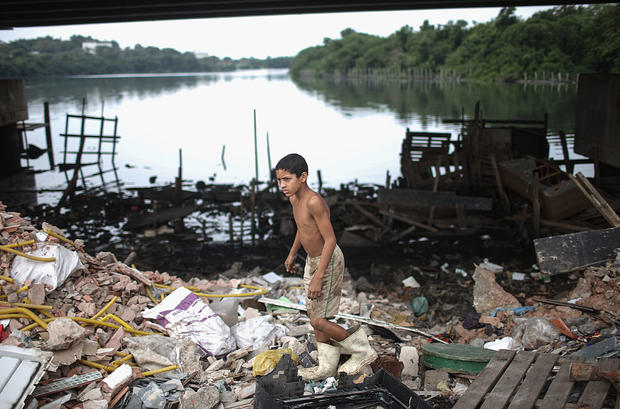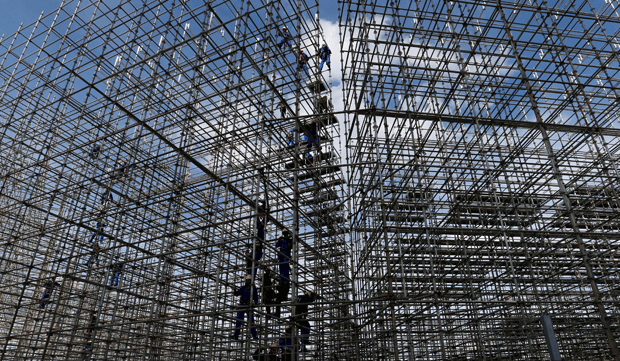Brazil's woes reach Olympian proportions
When the Olympic torch is lit in Rio de Janeiro in August, many Brazilians won't feel like celebrating, given the country's ongoing recession and a corruption scandal that has led to the impeachment of President Dilma Roussef. On top of those woes, there is the Zika virus outbreak, long-neglected pollution problems and a crime wave in Rio.
Indeed, arguably no host city in modern Olympic history has faced greater challenges in staging the world's large sporting event. And while Brazil's sports minister recently was quoted saying that the 350,000 visitors expected to travel to Latin America's largest country to attend the games "will have a great experience," skeptics abound.
"It's a real irony. In most instances, countries really host these kinds of events at a moment at which they're trying to point to the accomplishments that they have achieved," said James P. Moore Jr., director of the business, society and public policy initiative at Georgetown's McDonough School of Business.
Brazil won a hard-fought battle in 2009 for the right to host the games and even held a public celebration at Rio's famed Copacabana beach. At the time, the country was a formidable economic force, with growth fueled by rising prices for oil that China was eager to buy. That's no longer the case.
Brazil today faces its worst slump in decades, hurt by a slide in commodities prices amid slowing global growth. The country's gross domestic product has shrunk for five straight quarters, sending the unemployment rate above 11 percent, up from 6.1 percent at the end of 2012.
The contraction has starved the government of revenue needed to complete preparations for the games. As a result, the state of Rio de Janeiro has missed debt payments, halting the release of money needed to finish a planned extension of the city's subway system. Running low on funds, Rio may need to get an emergency loan from the government, Reuters reports.
The country's bonds are rated "junk" by Wall Street rating agencies and economists aren't expecting a rebound anytime soon.
"The fact that the decline in consumption is still accelerating strengthens the argument for the economy remaining in recession throughout this year," Pantheon Macroeconomics wrote recently in a research note.
Crime, not surprisingly, is a huge problem.
"Rio is a very dangerous place right now," said Riordan Roett, director of Latin American studies at The Johns Hopkins University School of Advanced International Studies in Washington, D.C. "Someone who doesn't speak Portuguese, who doesn't understand the culture, can easily wander off into the wrong street and run into a bunch of guys from the drug gangs."
Officials from the U.S. and International Olympic Committees didn't respond to an email requesting comment for this story.
The cost of hosting the Olympics has skyrocketed in recent years. According to research by sports economists Victor Matheson of the College of the Holy Cross and Robert Baade of Lake Forrest College, the 1988 games in Seoul cost $6.5 billion to put on, while the Rio games have been estimated at $11.1 billion -- and that official figure is almost certain to climb, given that overruns are the norm.
Meanwhile, organizers often forecast an economic benefit from the games that later prove unrealistic.
"If one wishes to know the true economic impact of an event, take whatever numbers the promoters are touting and move the decimal point one place to the left," Matheson and Baade wrote in a paper published in the Journal of Economic Perspectives.
As for the Rio games, Matheson expects the organizers will find it difficult to fill seats at the events.
"I don't think that anyone would be surprised if every stadium was full ... of schoolchildren who were given free tickets just so that the stadiums don't look empty."

